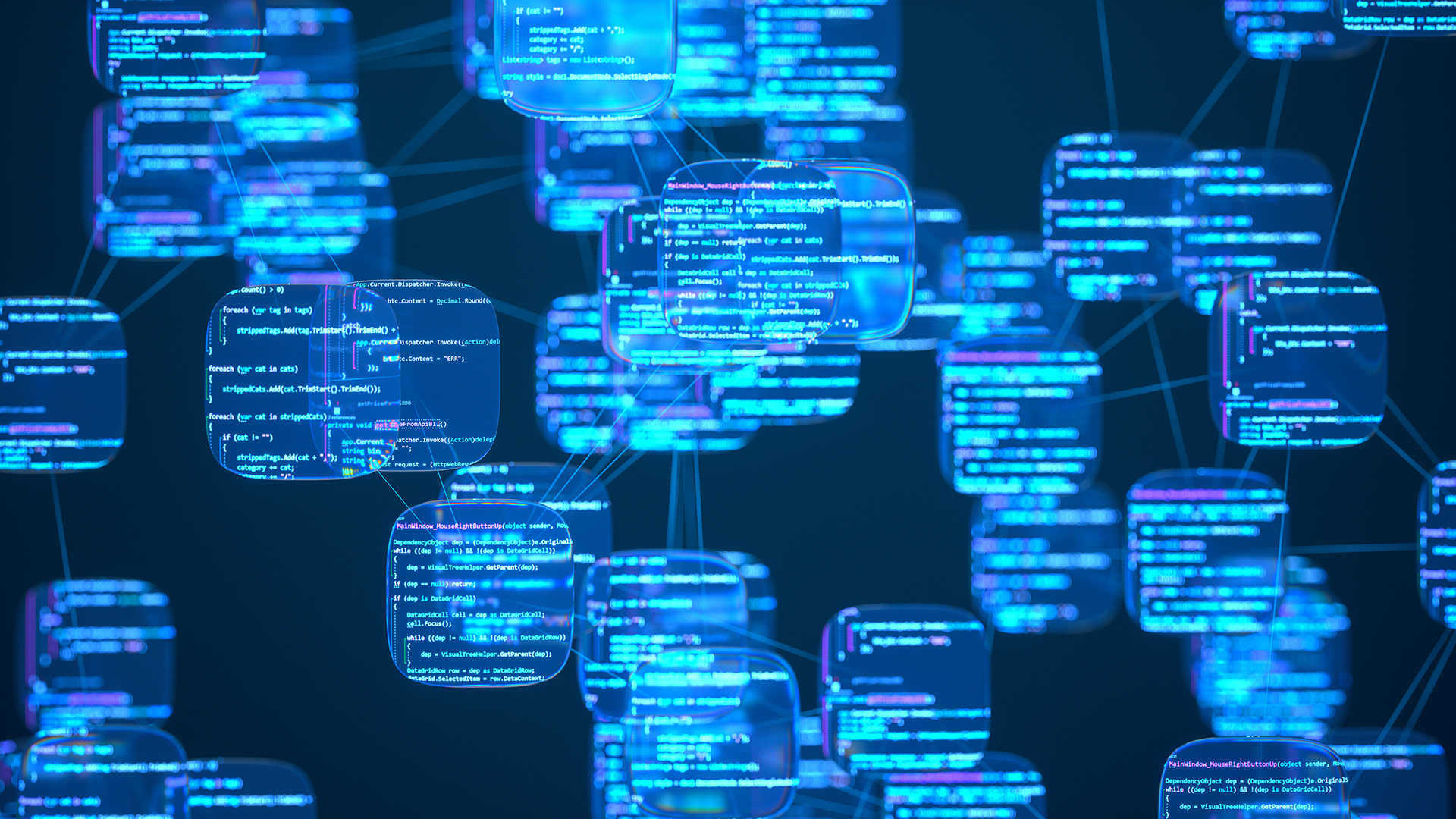MCP servers used by developers and 'vibe coders' are riddled with vulnerabilities – here’s what you need to know
New research shows misconfigured MCP servers are putting devs at risk


Sign up today and you will receive a free copy of our Future Focus 2025 report - the leading guidance on AI, cybersecurity and other IT challenges as per 700+ senior executives
You are now subscribed
Your newsletter sign-up was successful
Hundreds of Model Context Protocol (MCP) servers around the world are open to abuse, with vulnerabilities that put vibe coders and their organization's sensitive assets at risk.
Introduced late last year, MCP servers are an easy-to-use extension of LLMs, thanks to the simplicity of their protocols, and have come into widespread use due to the broad availability of independently developed MCPs.
However, according to analysis from Backslash Security, around half of the 15,000-plus MCP servers in existence are dangerously misconfigured or carelessly built. The resulting vulnerabilities are in some cases catastrophic, the company warned.
They fall under two general headings. First is the MCP ‘NeighborJack’ vulnerability, whereby hundreds of MCP servers are explicitly bound to all network interfaces (0.0.0.0), making them accessible to anyone on the same local network.
This was the most common vulnerability found, with hundreds of cases discovered.
"Imagine you’re coding in a shared co-working space or café. Your MCP server is silently running on your machine," the researchers said.
"The person sitting near you, sipping their latte, can now access your MCP server, impersonate tools, and potentially run operations on your behalf."
Sign up today and you will receive a free copy of our Future Focus 2025 report - the leading guidance on AI, cybersecurity and other IT challenges as per 700+ senior executives
Meanwhile, dozens of MCP servers allowed arbitrary command execution on the host machine thanks to careless use of a subprocess, a lack of input sanitization, or security bugs such as path traversal.
Most concerning of all, on several MCP servers both vulnerabilities were present, allowing bad actors to take full control of the host machine running the server.
Malicious actors that come across these MCP servers would have full access to run any command, scrape memory, or impersonate tools used by AI agents, Backslash said.
Meanwhile, beyond code execution, MCPs can serve as stealthy pathways for prompt injection and context poisoning, Backslash warned. Malicious or manipulated public content can change what an LLM sees - returning misleading data, or rerouting agent logic.
“Our research highlights several prevalent MCP server weaknesses that can open enterprise environments to threat vectors including remote code execution, data exposure, and network traversal,” said Yossi Pik, co-founder and CTO of Backslash Security.
More trouble on the way for MCP servers
In a yet-to-be-released finding, Backslash said it also identified an exploit path involving a seemingly benign public document that can trigger a cascading compromise, because the MCP silently connected it into the LLM agent’s logic without proper boundaries.
The issue here wasn’t a vulnerability in the MCP code itself, but rather in the configuration of the data source it accessed. Backslash said the issue affects a 'very popular' tool with tens of thousands of users and that it's currently working with the vendor to coordinate responsible disclosure.
The company has now launched a free self-assessment tool for vibe coding environments to help security teams gain visibility into the vibe coding tools being used in their organizations, continuously gauging the risk posed by large language models (LLMs), MCP servers, and IDE AI rules in use.
"It's critical to give developers and vibe coders the tools and guidance to safely navigate this emerging attack service, which is why we’ve created the MCP Server Security Hub," said Pik.
"Developers will continue to tap MCP servers' flexibility and utility, so we wanted to give the community a safer means of doing so."
MORE FROM ITPRO
- The NCSC wants developers to get serious on software security
- Shifting left might improve software security, but developers are becoming overwhelmed
- Software security debt is spiraling out of control
Emma Woollacott is a freelance journalist writing for publications including the BBC, Private Eye, Forbes, Raconteur and specialist technology titles.
-
 Pulsant unveils high-density data center in Milton Keynes
Pulsant unveils high-density data center in Milton KeynesNews The company is touting ultra-low latency, international connectivity, and UK sovereign compute power to tempt customers out of London
-
 Anthropic Labs chief claims 'Claude is now writing Claude'
Anthropic Labs chief claims 'Claude is now writing Claude'News Internal teams at Anthropic are supercharging production and shoring up code security with Claude, claims executive
-
 Anthropic Labs chief Mike Krieger claims Claude is essentially writing itself – and it validates a bold prediction by CEO Dario Amodei
Anthropic Labs chief Mike Krieger claims Claude is essentially writing itself – and it validates a bold prediction by CEO Dario AmodeiNews Internal teams at Anthropic are supercharging production and shoring up code security with Claude, claims executive
-
 AI-generated code is fast becoming the biggest enterprise security risk as teams struggle with the ‘illusion of correctness’
AI-generated code is fast becoming the biggest enterprise security risk as teams struggle with the ‘illusion of correctness’News Security teams are scrambling to catch AI-generated flaws that appear correct before disaster strikes
-
 ‘Not a shortcut to competence’: Anthropic researchers say AI tools are improving developer productivity – but the technology could ‘inhibit skills formation’
‘Not a shortcut to competence’: Anthropic researchers say AI tools are improving developer productivity – but the technology could ‘inhibit skills formation’News A research paper from Anthropic suggests we need to be careful deploying AI to avoid losing critical skills
-
 UK government launches industry 'ambassadors' scheme to champion software security improvements
UK government launches industry 'ambassadors' scheme to champion software security improvementsNews The Software Security Ambassadors scheme aims to boost software supply chains by helping organizations implement the Software Security Code of Practice.
-
 So much for ‘trust but verify’: Nearly half of software developers don’t check AI-generated code – and 38% say it's because it takes longer than reviewing code produced by colleagues
So much for ‘trust but verify’: Nearly half of software developers don’t check AI-generated code – and 38% say it's because it takes longer than reviewing code produced by colleaguesNews A concerning number of developers are failing to check AI-generated code, exposing enterprises to huge security threats
-
 Microsoft is shaking up GitHub in preparation for a battle with AI coding rivals
Microsoft is shaking up GitHub in preparation for a battle with AI coding rivalsNews The tech giant is bracing itself for a looming battle in the AI coding space
-
 AI could truly transform software development in 2026 – but developer teams still face big challenges with adoption, security, and productivity
AI could truly transform software development in 2026 – but developer teams still face big challenges with adoption, security, and productivityAnalysis AI adoption is expected to continue transforming software development processes, but there are big challenges ahead
-
 ‘1 engineer, 1 month, 1 million lines of code’: Microsoft wants to replace C and C++ code with Rust by 2030 – but a senior engineer insists the company has no plans on using AI to rewrite Windows source code
‘1 engineer, 1 month, 1 million lines of code’: Microsoft wants to replace C and C++ code with Rust by 2030 – but a senior engineer insists the company has no plans on using AI to rewrite Windows source codeNews Windows won’t be rewritten in Rust using AI, according to a senior Microsoft engineer, but the company still has bold plans for embracing the popular programming language
